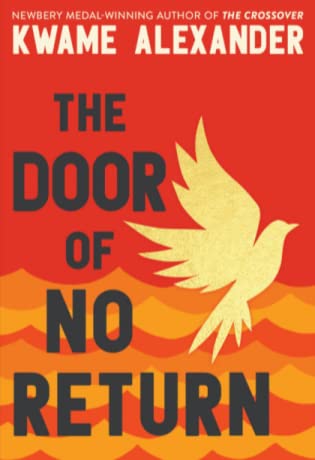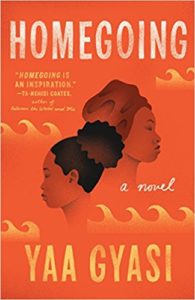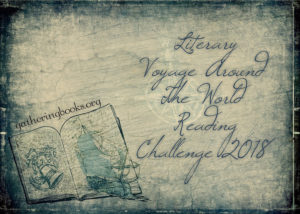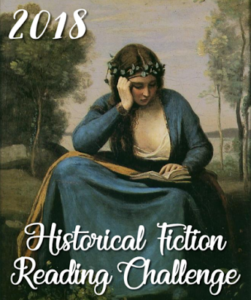 The Door of No Return by Kwame Alexander
The Door of No Return by Kwame Alexander on September 27, 2022
Genres: Historical Fiction
Pages: 432
Format: Hardcover
Buy on Amazon, Buy on Bookshop
This post contains affiliate links you can use to purchase the book. If you buy the book using that link, I will receive a small commission from the sale.
Goodreads
An instant #1 New York Times Bestseller!
From the Newbery Medal and Coretta Scott King Award-winning author Kwame Alexander, comes the first book in a searing, breathtaking trilogy that tells the story of a boy, a village, and the epic odyssey of an African family.
In his village in Upper Kwanta, 11-year-old Kofi loves his family, playing oware with his grandfather and swimming in the river Offin. He’s warned, though, to never go to the river at night. His brother tells him, "There are things about the water you do not know." "Like what?" Kofi asks. "The beasts." His brother answers. One fateful night, the unthinkable happens, and in a flash, Kofi’s world turns upside down. Kofi soon ends up in a fight for his life, and what happens next will send him on a harrowing journey across land and sea and away from everything he loves. This spellbinding novel by the author of The Crossover and Booked will take you on an unforgettable adventure that will open your eyes and break your heart. The Door of No Return is an excellent choice for independent reading, sharing in the classroom, homeschooling, and book groups.
Kwame Alexander’s new verse novel, The Door of No Return, fills an important gap. There are some wonderful books for adults, such as Homegoing and Roots, that explore the experiences of enslaved Africans, and the wonderful children’s book The 1619 Project: Born on the Water by Nikole Hannah-Jones and Renée Watson, but I cannot think of a middle-grade or YA novel that explores this story. This book would make a wonderful addition to any middle school English language arts classroom. I can see the potential for cross-curricular study in history as well. One of the great lies that White enslavers believed about those they enslaved was that they had no history, no culture. It couldn’t be a bigger lie—one Kwame Alexander deftly refutes in this beautiful story of Kofi Offin. I somehow missed that this was the first in a planned trilogy, and I’m very excited to see what he does with the other two books.
NPR’s Book of the Day podcast features an interview with Kwame Alexander:
 Homegoing by
Homegoing by 
